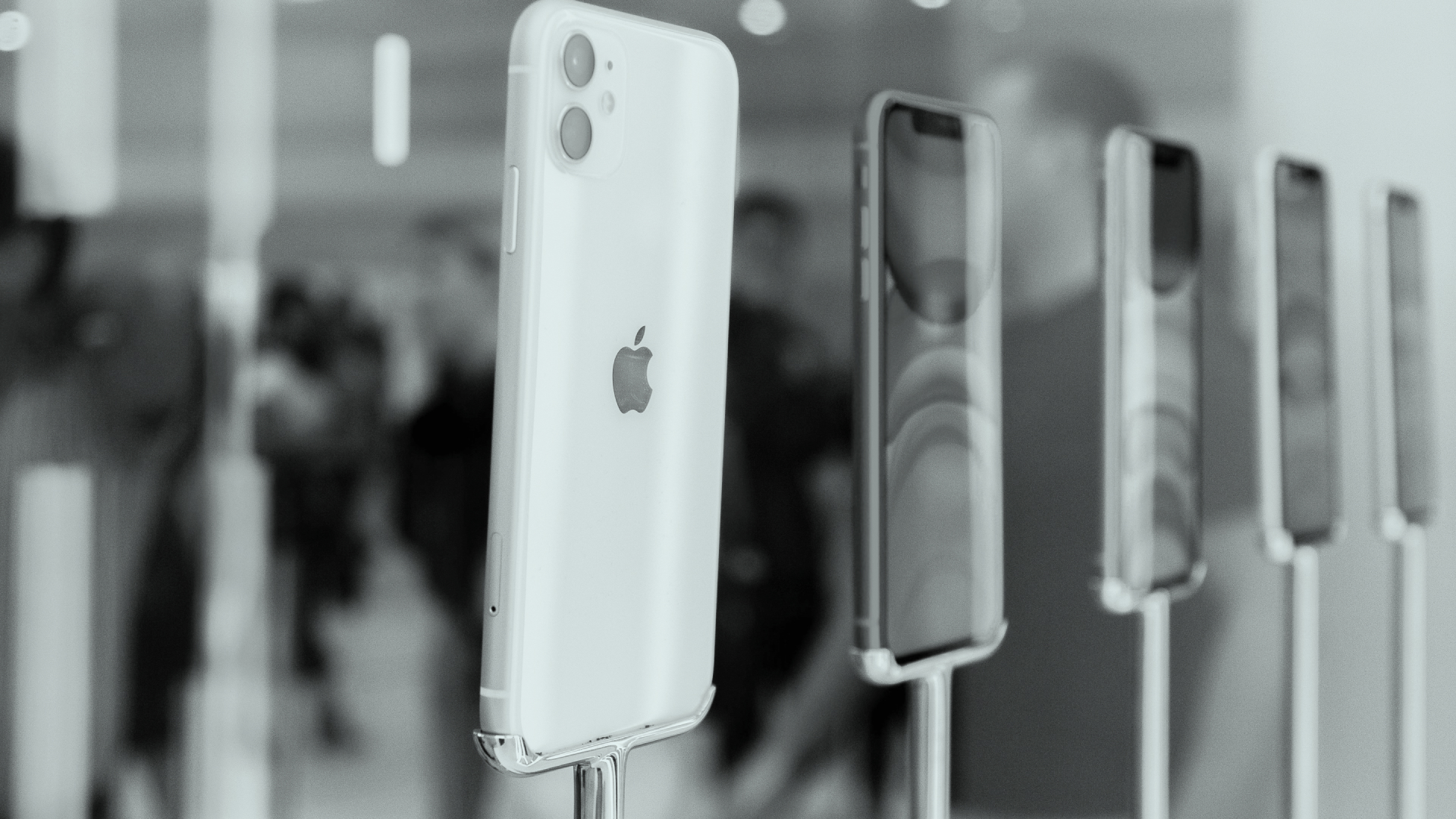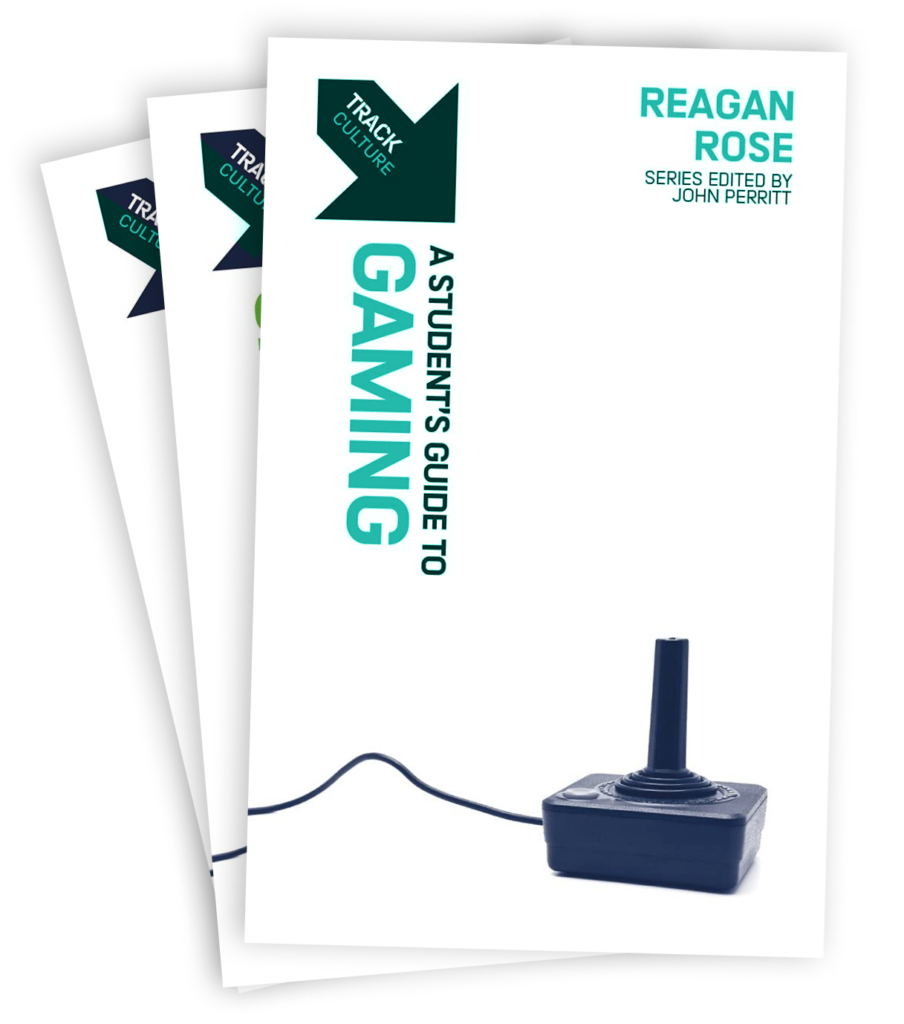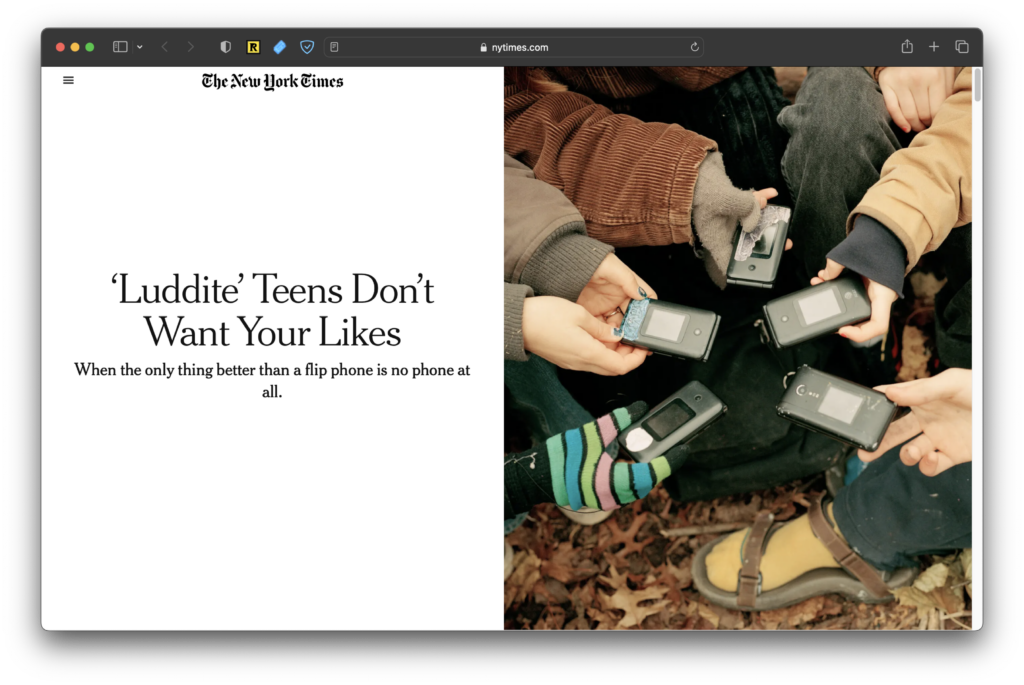In this two-part series, we’ll explore the troubled relationship many productivity-minded believers have with our phones. We’ll look at some of the problems they present and some possible solutions for making the most of the productive benefits while minimizing their potential for distraction on our phones.
“’All things are lawful for me,’ but not all things are helpful. ‘All things are lawful for me,’ but I will not be dominated by anything.”
1 Corinthians 6:12
A few years ago I had an alarming realization.
“I think I’m getting worse.”
I was reflecting on the state of my sanctification and self-development more generally. It seemed that in years past I had a much more consistent prayer life, was in God’s Word more frequently, read more books, and had more healthy habits in general. But somewhere in the past five to ten years, I had become consistently less consistent in nearly every one of those areas.
What had changed?
Around the same time, I also noticed what I thought was an unrelated phenomenon. I seemed to be less focused than I used to be, perpetually busy, and scatterbrained. This too was disturbing.
Why did it seem that both my sanctification and personal development were moving in reverse? Why couldn’t I stay focused anymore? And were these things related?
I thought about a variety of possible culprits. I was getting older and had more responsibilities now. Wasn’t it natural that certain activities would begin to be crowded out by the busyness of life? Isn’t it normal that my mind would become less sharp over time? And while some or all of those may have been contributing factors, I doubted they were the chief cause.
The more I thought about it, the more I became convinced that the main source of my brain fog and busyness was my phone. My phone had grown up with me. And as it had gotten more and more powerful, my screen time went up and up and up. And the more time I spent on my phone, the less time I was dedicating to focused work or habits for growth.
Just imagine how free you would feel if you got your phone usage under under control.
The mornings when I used to spend reading the Bible, half of the time I’d instead find myself scrolling my phone until it was time to go to work. The time I used to spend reading books was instead spent on Twitter. It seemed no healthy activity, spiritual or otherwise, was safe from the attention-sucking vortex that was my phone.
It was bad enough that I was committing the high crime of “killing time” on my phone. But to make matters worse there was collateral damage: My fragmented attention. The constant interruptions of notifications, the ever-present nagging impulse to check my phone, or the way that I would rapidly switch between social media feeds, was making me feel anxious and it was killing my attention span.
Something had to change. And it did.
Our Distracted Dystopia
“Wow! So you’re saying my phone is distracting me?”
Look, I get it. These aren’t ground-breaking ideas. And the research backs up what we all know from experience to be true: The more addicted we are to our smartphones the busier, more anxious, and less focused we feel.
Study after study has revealed that phone addiction leads to things like:
- Compromised attention span
- Increased anxiety
- Reduced productivity
- Disrupted sleep patterns
- Lack of interpersonal connection
- Decreased creativity
- Difficulty in completing tasks
After reading that list it is not an exaggeration to say that one of the most unproductive things you can do is be addicted to your smartphone.

When I was writing A Student’s Guide to Gaming I dug deep into the topic of addiction. And I much prefer the biblical language for addiction—enslavement. Because isn’t that just what addiction feels like anyway? You can’t stop. It’s like the thing has power over you. The absence of addiction then in freedom. Just imagine how free you would feel if you got your phone usage under control. And know this, it is possible.

A Student’s Guide to Gaming
A book by Reagan Rose
“Considering the growing dominance of video gaming as a pastime for young and old, male and female alike, the subject has received very little attention among Christian thinkers and writers. For that reason and others I am thankful for this brief book and its level–headed, Bible–based teaching and counsel.”
– Tim Challies, Blogger
As a productivity-minded Christian, I want to cultivate a life of focus so I can pour my best efforts into the things the Lord has called me to. I want to grow in my faith, my work, my health, and my thinking. I want to be a useful tool in the hands of the Redeemer. And that means spending my time wisely. It means laying aside every encumbrance (Hebrews 12:1). And if I really do believe my mission of serving God with my life is hampered by having my attention splintered by the constant IV drip of iPhone entertainment, you better bet I’m going to do something about it.
But there’s the rub…
Our phones—like all tools—are a double-edged sword. They simply increase our power and efficiency. And the power of our phones can be used to magnify our productive and God-honoring efforts. But it can just as well magnify our sins as it can our good deeds. Or more deviously, they are powerful entertainment devices that can keep us in a constant state of distraction.
If the devil cannot make us bad, he will make us busy.
Corrie Ten Boom
So what can we do about it?
Let’s Burn Our Phones and Go Off-Grid
Near the end of 2022, The New York Times published a story documenting a group of teenagers from Brooklyn who started a “Luddite” club at their high school.
These students decided they wanted to be more present and less plugged in. So in addition to planning real-world activities like meetups at the park to read classic books and explorations the city, some of these high schoolers also ditched their expensive smartphones.

It’s easy to assume that we’re on an inevitable slide when it comes to tech taking over our lives. But if a group of teenagers can push back against the reign of the tiny tyrant in their pocket, maybe we can too.
Cal Newport, the author of Deep Work and Digital Minimalism, a self-described Luddite himself, is optimistic about the future of tech and kids, especially as it relates to social media.
“We’re approaching a moment in which not using these apps will be seen as the authentic, counter-cultural move. We don’t need to convince teenagers to stop using their phones, we just need them to discover on their own just how uncool these online media conglomerates, with their creepy geek overlords, really are.”
Cal Newport, ”On Teenage Luddites”
I do hope he’s right.
But is fully disconnecting from our phones the right answer? And is it even possible? Even the students in the article admit that the Luddite life may just be a temporary luxury.
The main subject of the story is a high school senior named Logan, and she seems given up on the fact that in college and in her career, she will probably be forced to rejoin the smartphone masses.
“If now is the only time I get to do this in my life, then I’m going to make it count,” she said. “But I really hope it won’t end.”
This mirrored my own experience.
My Dumb Phone Adventure
It’s not impossible. But it is very hard to live and participate in the modern world without a smartphone today.
About a year ago, I made this video documenting my experience using a minimalist dumbphone for a month. I didn’t plan it as a 30-day experiment. I was fed up. So at the time, I believed I would be ditching my phone permanently. I was excited to finally be free.
But after trying to navigate the modern world without a smartphone for a month I discovered that it presented a number of unexpected difficulties.
- No GPS for driving
- Difficult or impossible to check email to pick up orders from the store
- No good camera to catch moments with kids
- Lack of QR code scanner for restaurant menus
- No access to useful apps like Uber, Bible, Kindle, Notes, or functional calendar
- And worst of all, being relegated to “green bubble” status in group chats
Sure, these are mostly minor inconveniences, but a heaping pile of minor inconveniences is a major inconvenience. I truly enjoyed that month of being unplugged. But I found that for me the drawbacks of disconnecting from my smartphone did not outweigh the benefits.
If you don’t proactively decide the place your phone will hold in your life, it will decide for you
Without trying it yourself it’s easy to say things like, “We got by just fine 10–15 years ago without these phones!” But before you launch into your back-in-my-day rant, try it. Because when you actually try going phone free, you realize just how much society has changed in the past decade. It’s a different world with different expectations for how we interact with it. When you give up your smartphone, you’re giving up all of its benefits too.
So reluctantly I admitted that dramatically casting my iPhone into the sea maybe was not the cure-all I thought it would be. And, filled with shame, I pulled my iPhone back out of the drawer and powered it on again.
But this time would be different.
Getting Wise
Perhaps going full Luddite might work for you. I don’t want to discourage it. I’m often tempted to try it again (perhaps with a better phone this time). But there are other alternatives to bringing control back to your phone usage.
It’s certainly easier to make a simple rule, “my phone is a problem, so I’ll never use it again!” But such pronouncements ignore the utility and the blessing of these devices. The truth is so much of the Christian life is about living wisely in the times we are in. A wise person sees both the potential benefits and the risks of new technology and takes pains to exploit the blessings for good ends while capping the downside risks.
The productive potential of our phones is massive. We have access to all the knowledge at our fingertips, we can serve others and proclaim Christ in millions of ways, and we truly can get more done using our phones. They are productivity machines. But wisdom calls us to not blindly follow our phones wherever they would lead us. That’s where the problems come in when we don’t actively decide how we will use our phones and how we don’t.
Wisdom means creating boundaries so we can maximize your phone’s positive features, and minimize their harmful effects. If you don’t proactively decide the place your phone will hold in your life, it will decide for you. The merchants of attention will continue to find ways to exploit our psychology to make our devices more and more addicting.
So what are some simple steps we can take today to spend less time on our phones, so we can be more focused on what matters most?
We’ll discuss that next week in part two.


Thank you for the good read. It made me think about our phones like I think about food. If you have an eating problem you can’t say “I just won’t eat again!” You still need to eat food (or use your phone) but you need to do it properly.
Well said! God-honoring moderation and intentionality—that’s the path of wisdom.
This is what I need to be confronted with. Thank you!
Father for give me for wasting time with entertainment. Help me focus to be devoted for your purposes in the Church as a living sacrifice acceptable as reasonable worship!
I’m at the moment not using my phone for the reasons already listed in this article.
As mentioned, it’s almost impossible to live in these digital times without a smart phone for reasons also listed_gps, pictures, mails of orders.
A way I however try to get around these other necessities that would want to force me back to the phone is to use a Laptop instead.
With a laptop, I get to check mails, use my bible apps etc only when I need to.
Since I’ve been more clear headed and productive. I sincerely hope I continue this way.